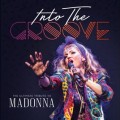What would you save if your house was on fire? Katherine Woolf from UCL asks this question of the audience of Nottingham Skeptics in the Pub at the beginning of her talk, “Game of Clones – Why should we care if our friends are similar to us?”
Around half of those in attendance would grab an electronic device of some sort such as a phone or a laptop. Clearly, a lot of us think the same way, which is natural as we all have a fundamental need to belong. We fulfil that by having personal relationships with other people and these people are important – they have a big influence on us. We do not form these relationships at random.
Homophily is the love of the same. Just like the old saying, “birds of a feather flock together” We assimilate with people who are similar to ourselves, often in terms of gender, nationality, ethnicity, level of education and religion. It also shapes our physical landscape, for example the segregation by ethnicity in Bradford. All of this seems to start quite early in life – primary schools are quite segregated.
Katherine has specifically been looking at medical students. In many ways they are the “lab rats” of research – they are highly selected, they have the same opportunities and what happens with them effects all of us. Medicine is really popular in Black and Minority Ethnic (BME) students. Around a third of the 8,000 new medical students every year are BME. The majority are Asian with a few black students. At UCL, 90% of the medical students are British and around half are BME. These BME students underperform in exams and are more likely to be sanctioned. This reflects the inequality of society – how can we make things fairer?
Learning is a social process. A social network study mapped the connections by giving students a list of everyone on their year and then asking them to circle their friends. When the results were graphed it showed a clear divide in ethnicity (far clearer than the divides in gender or even where the students lived) What do the students themselves think of homophily? They definitely identified that it was happening – in some cases they had even come up with negative terms to refer to it, such as the “great wall of china” relating to Asian students at the front of class. While students knew that it was happening, they also realised that diversity was crucial to their future careers.
But why does homophily happen? You stick with what you know – people have an “inter-group anxiety” that could be due to fear of being misunderstood. Ethnicity is one of the first things that you notice about a person. Meanwhile at university, societies can help to strengthen homophily. But is it a conscious choice? DO you do things that you enjoy and just discover that everyone is the same as you or do you enjoy those things because the people are the same as you? In the end, it’s about sense of identity.
However, it does feed into things such as the old boys’ network of the Bullingdon Club. People in all white, male social networks receive 75% more job leads than those with no white males in their networks. Medical students were asked to create an “ego network” by naming the people who they thought were most important to their studies. Those who named one of their clinical teachers had better grades. White students were more likely to name one than BME students.
Homophily can lead to problems, especially an “Us vs Them” attitude. Seperation between students van magnify group inequalities – this is important at university as who you know can influence what you know. When people are separate, more stereotypes can arise. For example, the idea that Asians are “pressured” into medicine, which makes it harder for them as they have to “prove” themselves.
In medical students, research has shown that those with more diverse friendship groups get better grades (although it’s unclear about whether this is causal or just correlation) McKinsey, the management consulting firm also did some research into companies. It turns out that those that are more ethnically and gender diverse have higher earnings. Those that were more gender diverse where 15% more likely to outperform while those that were more ethnically diverse where 35% more likely. At the same time, “brokers”, connectors between groups, get more pay and more promotions. How can we all reap the benefits of diversity?
Then it’s time for some interaction – Katherine has us all create our own “identity maps” To do this, we write our name in the centre of a page and around it we write down things about our relationships (family, pets, etc), our job, what we like to do in our spare time, our characteristics (daydreamer, tattooed, etc) and what we really like and really hate. This show us that we have multiple, often conflicting, personalities and that people don’t always conform to stereotypes. As we share our identity maps with others, it becomes clear that we have more in common with each other than we’d imagine.
The more you find out about someone, the more they seem like a real human. Contact breaks down barriers and it reduces prejudice. We see things as less “us and them” and more as just “us”. Anxiety and stereotyping is reduced and empathy increases. People bond fairly easily – sharing personal details engenders trust and physical proximity helps with bonding.
Skeptics in the Pub will return to The Canalhouse on the 4th of October where Rebecca Reilly-Cooper will talk on “A Critical Examination Of ‘Gender Identity'” For more information visit the Nottingham Skeptics website: http://nottingham.skepticsinthepub.org/
By Gav Squires
@GavSquires




